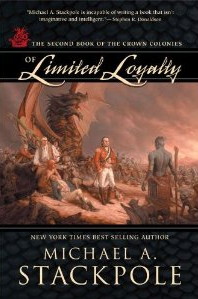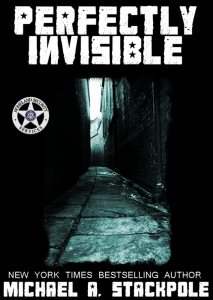…In Book Form…
HarperCollins has sued Open Road Integrated Media over Open Road’s publication of an ebook version of Julie of the Wolves, a children’s book HC acquired in 1972. The link above is to The Passive Voice blog, which is a great place for learning about publishing and contracts. I retweet their content often and am pleased when they link to some of my content. Passive Guy, the blog’s owner, is a lawyer and far more qualified than I to offer legal opinions on this whole mess.
One aspect of the lawsuit seems to be centered around HC’s contention that they bought the rights to publish Julie of the Wolves “in book form.” The contract was signed in 1972. Being as how I like to think of myself as a futurist (the fancy term for science fiction writer) and that my college degree is in history, that particular phrase has me looking back to look forward. Would what Open Road brought out now have been viewed as “in book form” back then, in 1972?
Just by way of reference, back in 1972 I was a sophomore in High School. Computers were big boxy machines that spit out paper tape and punch cards, or recorded data on these huge reels of magnetic tape. The only privately owned computer I know of from that era was the old Raytheon computer that Rick Loomis had purchased in 1969 to run play by mail games. In 1973 I got introduced to the world of computers and computing by visiting a computer lab at the University of Vermont with high school buddies . We logged in as guests and played games, most of which were basic programs that reported results with little Ascii charts, maps or text readouts. I recall when the first Adventure game (aka Zork) started appearing. We got it on the UVM computer in modules, and it wasn’t until 1979 when a friend purchased an Apple ][e that I got to finish the game I’d be playing in 1973.
The significance of that little trip down memory lane is this: in 1973 I rented computer space on the UVM mainframe. I rented 25K of memory, which cost me $1 a month. I think this is an important point because even the smallest of what we currently recognize as ebooks takes up at least 10 times that much memory. (Sure, a pure .txt file will be much smaller, maybe around that 25K, but this lawsuit isn’t about .txt files.) A PDF of a book, which is probably the thing which resembles a print book most closely, is an absolute pig when it comes to memory. Few, if any people, back then had the vision for ebooks that we accept today.
In looking back to look forward, I suspect the only reason we recognize what we have as ebooks as being “in book form” is due to a pair of factors. First, we call them ebooks. We called them ebooks even when I was formatting them for Palm Pilots and reading them by having the text scroll freely up and down. One program I looked at even had a teleprompter feature, where the text would automatically scroll up at a set reading speed. What if we’d chosen to call them “e-scrolls” instead? They’d still convey the same information, and would have been right at home in many cultures. Heck, Homer might have recognized his work in that form, whereas an actual book might have seemed odd to him. (Yes, I know that many ancient books were formatted as a codex, but hang with the spirit of the thing here.)
Second, Amazon’s Kindle, and every other reader, in trying to duplicate the “book experience,” has geared software interfaces to make ebooks function closely and recognizably as paper books. Traditional publishers carry this on to a ridiculous degree: they hard code table of contents in the front of an ebook, ignoring the fact that every one comes with an automatic TOC built in. No reader is going to flip back to the hot linked TOC page by page when they just tap the screen and get what they want. And yet, the hot linked TOCs still appear. (THAT’s why ebooks are so expensive, I’m sure. Not easy to do all that unnecessary linking.)
This does open up a larger discussion concerning when a story is a book or isn’t a book. In some contracts, the word book appears to be synonymous with “novel.” That would be a work of novel length, a concept in and of itself which is poorly defined. The Science Fiction and Fantasy Writers of America (SFWA) defines a novel as a work over 40,000 words in length—even though the standard works in that genre are two to three times that length. Category romances, on the other hand, tend to be much smaller, but are marketed as novels. And if we take novel to mean a work of 40,000 words or more, and book to mean novel, what then is a set of three, 35,000 word long serial novellas grouped together in a collection? Is that a book, or a novel, or an anthology, or just a bargain package for ebook readers?
It’s oft been said that the law lags behind technology. It’s true. Technology is the frontier, and the law is never a frontier phenomenon. Here technology may also be forcing a re-examination of definitions which appeared to have been settled long since. Let’s remember that before we had printed books, we had stories of prodigious length. Let’s not forget that in pioneering the publication of novels, W. H. Smith used to break them all into three parts because that facilitated their book rental business along British rail lines. Let’s not forget that a novel may be presented in book form, but that not everything which appears in book form is a novel.
Let’s be prepared for technology to force us to redefine everything. And, in doing so, exploding a lot of contracts and a lot of business practices which have never been seriously threatened before.
Above all remember that, as writers, our job is to be entertainers. It doesn’t matter how we package what we do, or at what price we sell it, we must entertain. If that’s not your purpose, if that’s not your goal, you can call whatever you turn out anything you want to call it. Readers may nibble, but they won’t devour. Challenge your audience, give them good stories, and you’ll have a long career in this business—no matter what we end up deciding it should be called.
Writing blog posts cuts into my fiction writing time. If you’re finding these posts useful, and haven’t yet gotten yet snagged my latest novels, please consider purchasing a book. Nice thing about the new age of publishing is that you become a Patron of the Arts, letting writers know what you’d like to see more of simply by voting with a credit card. (Authors charge less when they sell direct, so you save, we make more, and that frees us to write more.)
 My latest paper novel, Of Limited Loyalty, is out in paper. If you want it for the Kindle, just hit this link.
My latest paper novel, Of Limited Loyalty, is out in paper. If you want it for the Kindle, just hit this link.
 For those of you who haven’t tried Perfectly Invisible yet, now is your chance. I’ve provided three sample chapters here on my website, or you can click on any of the online retailers below and download a free preview of the novel. You can get up to speed on Miracle Dunn and watch how the new story unfolds here as I blog about the writing. (The novel is 50,000 words long, or a five hour read for the average reader.)
For those of you who haven’t tried Perfectly Invisible yet, now is your chance. I’ve provided three sample chapters here on my website, or you can click on any of the online retailers below and download a free preview of the novel. You can get up to speed on Miracle Dunn and watch how the new story unfolds here as I blog about the writing. (The novel is 50,000 words long, or a five hour read for the average reader.)
The full novel is available for purchase right now from my webstore. Just click on the cover image to the left, or on that link. The novel runs $3.99, and the package in my store has both the Kindle and epub versions of the books, so you’ll have a copy that works with any of your readers. As always, the books are presented without DRM (digital rights management) and I have a note with instructions for getting the book onto ereaders and smartphones.
For the Kindle edition, just hit this link.
To purchase it through iTunes for your iPad/iPhone/iPod, just hit this link.
To purchase it through Barnes & Noble for your Nook, please use this link.



 13. Jan, 2012
13. Jan, 2012 








One Response to “…In Book Form…”